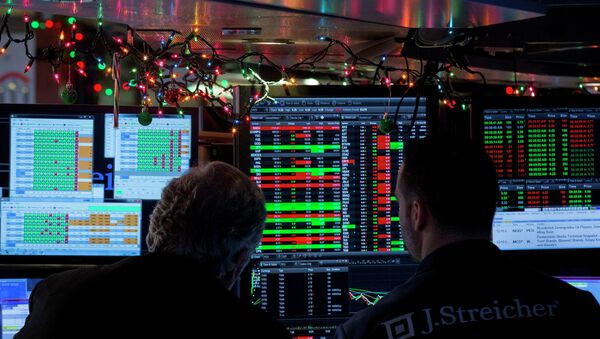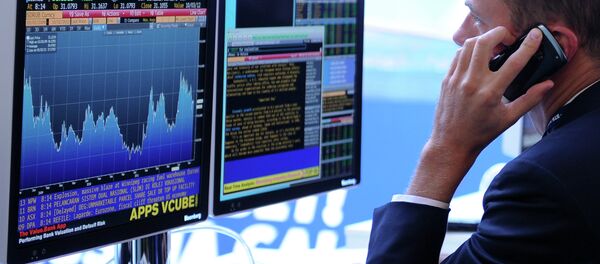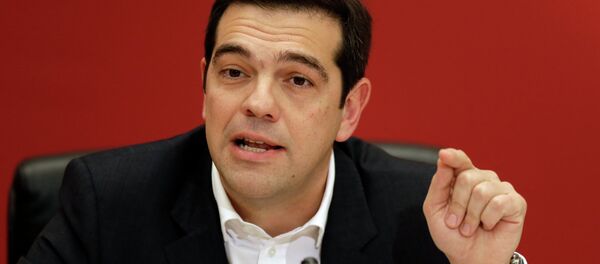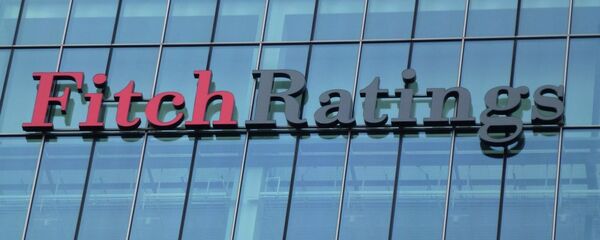Global stocks were mixed Monday, with Wall Street optimistic on a crude resurgence, while investors in Southern Europe, namely, Spain and Italy, were pessimistic amidst the winds of change blowing from Greece, and Asia-Pacific tumbled between gains and losses as fuel costs rose higher. Today, Asian markets opened in the green amid signs of a consensus on the Greek situation.
US markets rallied Monday, with the Dow Jones Index adding 1.14%, the S&P 500 rising 1.30% and Nasdaq edging 0.89% up. The energy sector has witnessed the lion's share of gains, as the US is experiencing the biggest and fastest resurgence in crude prices since 2011. WTI crude rose just above $50/bbl Monday. The rally in US domestic crude prices – consequently affecting the global oil market – was kickstarted Friday when data revealed US oil producers pulled 94 oil-drilling rigs out of commission that week, triggering an 8.3% rise in oil prices that same day.
Global fuel prices rose roughly 13% since the end of last week with Brent crude topping the $54/bbl benchmark, the fastest energy appreciation since October 2011. As a result, markets in Asia-Pacific were badly shaken, ending the day flat at best. Equities of airlines and marine shippers went down amidst fears of a hike in fuel expenses, while oil importers and refiners fared better. In Japan, more expensive oil may ease concerns of the ever-looming deflation in medium-term perspective. All in all, on Monday, the Nikkei 225 index slid 0.3%, while the broader Topix index lost 0.2% its valuation. In individual stocks, the equities of oil company Inpex skyrocketed, adding 6.1%, while other stocks in the energy sector also rose. JGC Corporation added 4% and the oil-processing giant, JX Holding, rose by 4.5%. Equities of Japan Airlines depreciated by 3.3%, and Toyo Tire and Rubber slid 2.3% due to concerns of increased expenses.
"We’re beginning to see the bottom in oil prices and that’s stabilizing U.S. stocks, which in turn is stabilizing Japanese shares," Yusuke Kuwayama of the Tokyo-based Marine & Nichido Fire Insurance Co. told Bloomberg. “The market seems to have digested all the negative oil news, so with energy companies having downgraded their outlooks, it seems the massive fall in oil prices is now priced in.”
Hong Kong’s Hang Seng Index was flat at the close, while the Shanghai Composites edged 0.5% up. Equities of tech firm Lenovo surged 7.8% in Hong Kong on the optimistic profits report.
Italy’s FTSE MIB Index slid 0.1% at the close Monday, while Spain’s Ibex lost 0.7%. That same day Goldman Sachs switched its preference to the broader Stoxx Europe 600.
"We recommend closing tactical pro-cyclical exposures in peripheral equities (MIB and IBEX) until more clarity emerges about the direction ongoing negotiations between the new Greek government and the European authorities are taking," Goldman Sachs said as quoted by Reuters.
The electoral success of the Greek SYRIZA party emboldened anti-EU supporters all over Southern Europe, with the Spanish anti-austerity Podemos (We can) party attracting hundreds of thousands to their rallies this past weekend.
"Spanish banks are being hit because investors worry that Syriza's anti-austerity drive spreads to Spain and boosts Podemos," Arnaud Scarpaci of Montaigne Capital told Reuters.
Rather a paradox, Greek shares advanced 4.6% on Monday, after the government said it would not take any action that would hurt the market valuation of the nation’s banks. Investors had been hoping that prudence will prevail over the anti-capitalist rhetoric in Greece in the end. Adding to this optimism, the Greek government announced the emission of the new bonds backed by the nation’s GDP growth in order to restructure the nation’s debt burden.
The pan-European FTSEurofirst 300 edged 0.2% up at the close as Germany is aggressively expanding, and the ECB policies have fueled the bullish sentiment across the continent.
The ruble declined against the dollar in the four days prior to Monday, down to as much as 69 rouble per USD. However, on Monday the ruble strengthened 0.6% to 68.47 per USD. The Russian Central Bank’s interest rate was cut down to 15% from the previous 18% on January 30, boosting liquidity inflows into the contracting economy. However, at this point Russia’s national currency might stabilize for a while – before the biggest companies must pay roughly $10.2 bln in foreign debts this month.
Either the indebted business giants, including the state-owned Rosneft, will convert their rubles into hard currencies to meet their foreign debt obligations, or they may opt to keep their dollar-denominated revenues outside Russia to pay off their debts. However, both scenarios will lead to a dramatic depreciation in Russia’s currency, the same as in mid-December.
Russian stocks markets were mixed. The Micex Index was 1.4% down Monday, while the dollar-denominated RTS Index rose 1.2%, both indices almost accurately reflecting the dynamics of the rouble’s FX rate.








